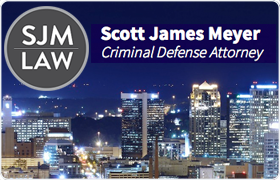Palmerdale RICO Act Lawyer, Alabama
Sponsored Law Firm
-
 x
x

Click For More Info:
-
Law Office of Scott Meyer
1211 28th Street South Birmingham, AL 35205 » view mapJefferson County Criminal Lawyer Success with Scott
Scott James Meyer provides first-class criminal defense representation in Birmingham and the State of Alabama for drug offenses and other felonies and misdemeanors.
800-697-0641  Scott Meyer Birmingham, AL
Scott Meyer Birmingham, ALAttorney At Law - Alabama, 2010
Birmingham School of Law, J.D. - 2009
 Facebook
FacebookFor Additional Information About The Law Office of Scott Meyer
 Contact UsEmail or Call 24/7
Contact UsEmail or Call 24/7Call Today For Your Initial Free Consultation.
Not enough matches for Palmerdale RICO Act lawyer.
Below are all Palmerdale Criminal lawyers.
Leslee French Hughes
Accident & Injury, Criminal, Wills & Probate, Divorce & Family Law
Status: In Good Standing *Status is reviewed annually. For latest information visit here Licensed: 29 Years
Alan Scott Hughes
Divorce & Family Law, Criminal, Estate, Accident & Injury
Status: In Good Standing *Status is reviewed annually. For latest information visit here Licensed: 28 Years
James Stanley Roberts
Accident & Injury, Personal Injury, DUI-DWI, Criminal
Status: In Good Standing *Status is reviewed annually. For latest information visit here Licensed: 37 Years
David Lee Rawls
Military & Veterans Appeals, Litigation, Criminal
Status: In Good Standing *Status is reviewed annually. For latest information visit here Licensed: 34 Years
William Guthrie Barnes
Real Estate, Criminal, Civil Rights, Car Accident, Bankruptcy
Status: In Good Standing *Status is reviewed annually. For latest information visit here Licensed: 26 Years
Jerry Neil Quick
Divorce & Family Law, Criminal, Accident & Injury
Status: In Good Standing *Status is reviewed annually. For latest information visit here Licensed: 49 Years
Matthew Joseph Hornsby
Real Estate, Estate, Criminal, Accident & Injury
Status: In Good Standing *Status is reviewed annually. For latest information visit here Licensed: 17 Years
Joseph Paul Florence
Social Security, Employment Discrimination, Child Custody, DUI-DWI
Status: In Good Standing *Status is reviewed annually. For latest information visit here Licensed: 9 Years
Jeffrey D. Bramer
Traffic, Firearms, DUI-DWI, Criminal
Status: In Good Standing *Status is reviewed annually. For latest information visit here Licensed: 36 Years
John Louis Bodie
Juvenile Law, Divorce, DUI-DWI, Traffic
Status: In Good Standing *Status is reviewed annually. For latest information visit here


 Scott Meyer Birmingham, AL
Scott Meyer Birmingham, AL Facebook
Facebook Contact UsEmail or Call 24/7
Contact UsEmail or Call 24/7